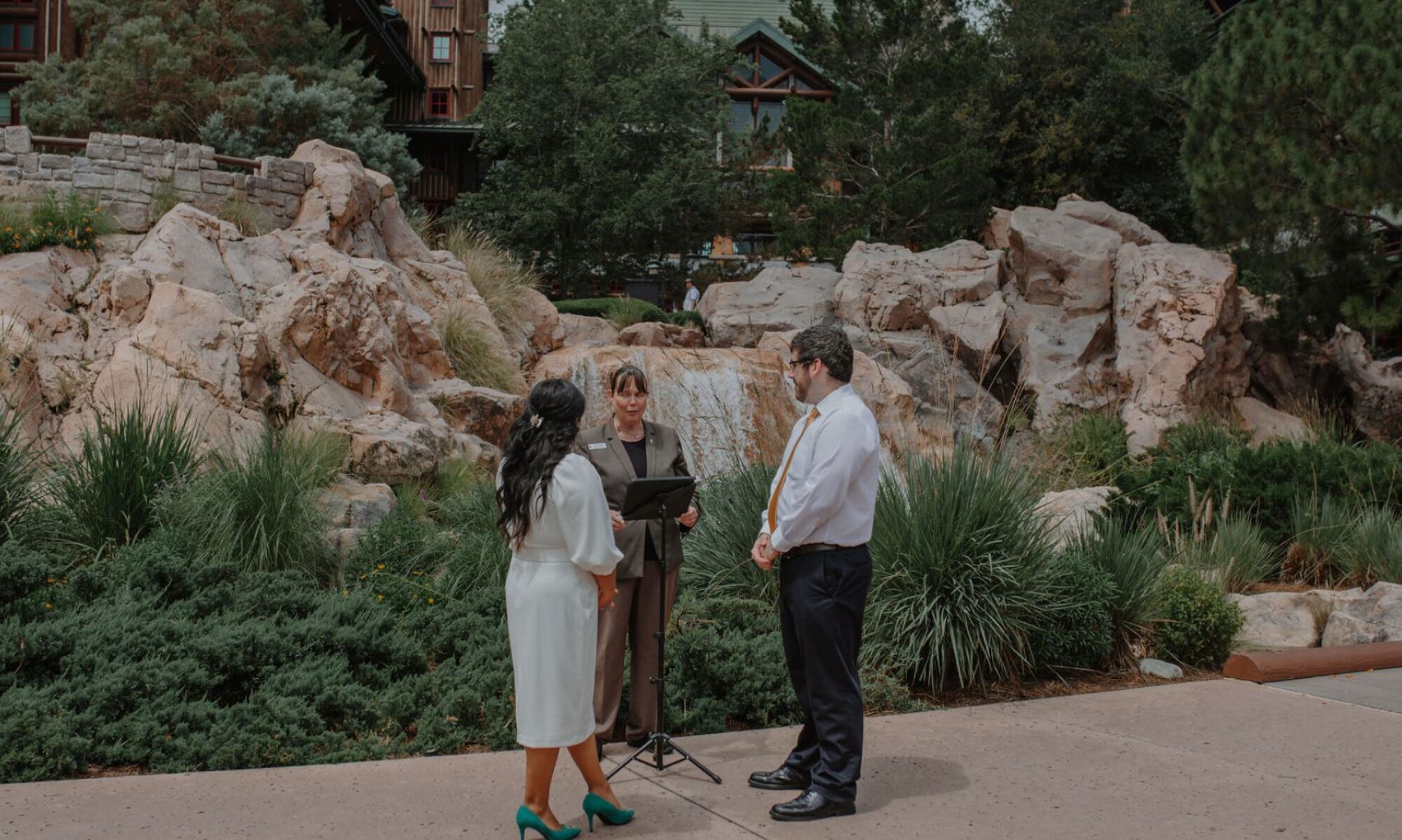I was chatting in a group and someone interrupted to say hello. He’d recognized me as the officiant at a recent non-religious funeral. The conversation shifted abruptly. Someone in the group said they didn’t know that Atheists would even have funerals: “Why would they?”
I’ve had people tell me they didn’t understand marriage in the context of Atheism. Or secular baby welcoming / baby naming rituals that may take the place of baptisms. And yes, some think that one who doesn’t share their faith wouldn’t experience funerals, celebrations of life, or memorials in a meaningful way. Through a narrow lens, those moments may be steeped in the traditions of a specific faith.
Ritual is something ubiquitously human. It’s a significant experience across diverse perspectives. All feel love for others and grieve losses, support friends and family in their grief, and may find meaning in gathering together to say goodbye and honor someone lost. Yes, Atheists have funerals.
Beautiful moments of connection, like the private conversation that followed “Why would they?”, can build mini-bridges. But they’re also a broader reminder that barriers to diverse exposure (like limiting educational conversations about diversity) can create chasms between us and add to heavy, lonely burdens that people around us are carrying.
Mini bridges help, but larger bridges are needed.
A systemic bias in deathcare
The deathcare industry is, like many other service-focused industries, imbued with faith-bias. That means that people of secular and religious minority identities who are experiencing grief may also face, or fear facing, discrimination, identity washing, othering, silencing, harassment, faith bullying, being outed/coming out, and other challenges – at one of their most vulnerable moments.
It often comes as a surprise, even to those who face these Sisyphean challenges every day. Deathcare is a subject many people avoid in general. And further, very few consider in advance how LGBTQIA+ or secular or religious minority identity might impact them or their family when a death occurs. Far fewer make a plan, identify affirming providers and professionals in advance, and provide practical and legal tools that make things easier for loved ones.
There’s enough drama & trauma for families at such a difficult time. No one wants to be preyed on in a time of grief and no one should be forced to pray, pretend to pray, or defer to someone else’s g/God(s) at a time of grief and loss. Every person of every religious, secular, and spiritual identity – and LGBTQIA+ identity – deserves to be authentically honored in their deathcare.
Planning ahead is self-care.
You can plan for inclusive services by providing direction in your planning documents about, for example, using a certified Humanist Celebrant and how to locate one (links are below). This is important because the funeral home professional you’re working with may not be aware – or willing to acknowledge – that this resource exists. Remember that a Humanist Celebrant or Chaplain may be able to help you through the entire process, potentially even joining your meetings with the funeral home and cemetery if you invite them to.
If you’re intentional, open, and determined you can find inclusive providers who won’t try to “save” you on your deathbed or “bless” your body without consent. You can vet funeral providers (funeral homes, funeral directors, cemeteries, etc. – even hospices or hospitals) to ensure your perspective is welcomed and you and your family will be treated with respect when it matters most. You’re going to put your trust in someone – by planning ahead you have greater control over who that will be.
Vetting companies & professionals can be as simple as glancing over their website and social media shares, and/or disclosing your identity to them. Listen to the messages they promote or how they respond to you. How does what they say make you feel? Trust your gut. If the shoe doesn’t fit, it’s not your shoe.
And know that there are advocates and allies willing to help. You are not alone. If you have questions about inclusive deathcare, whether for a current experience or for planning ahead, i’m a call or text away at 407-608-9242.
RESOURCES
- Identity Affirming Deathcare Directives – a free download fill-in-the-blank style guide and mental health and other resources for those in the LGBTQIA+ and minority RSSI (Religious, Secular, and Spiritual Identity) communities.
- The Humanist Society – contact certified Humanist Celebrants, Chaplains, Lay Leaders, and Invocators.
- National Consortium for Inclusion in Deathcare – This is a Big Bridge under construction – an emerging group of inclusion-focused deathcare professionals and researchers working to establish support for one another and resources for everyone. Contact 407-608-9242 to get connected.
- More information & resources for Humanist and non-religious end-of-life ceremonies: https://humanistcelebrantorlando.com/memorials-life-celebrations/








